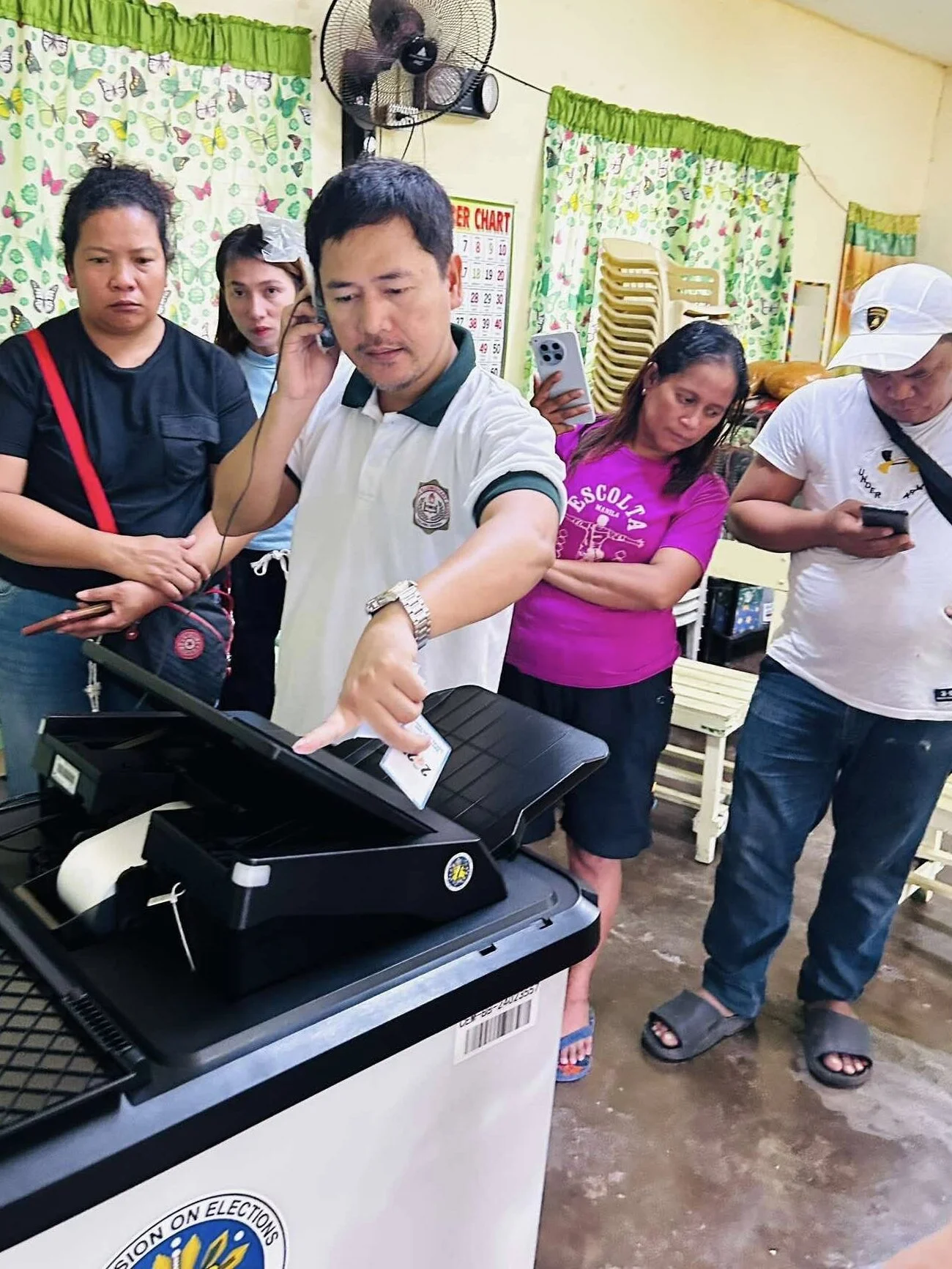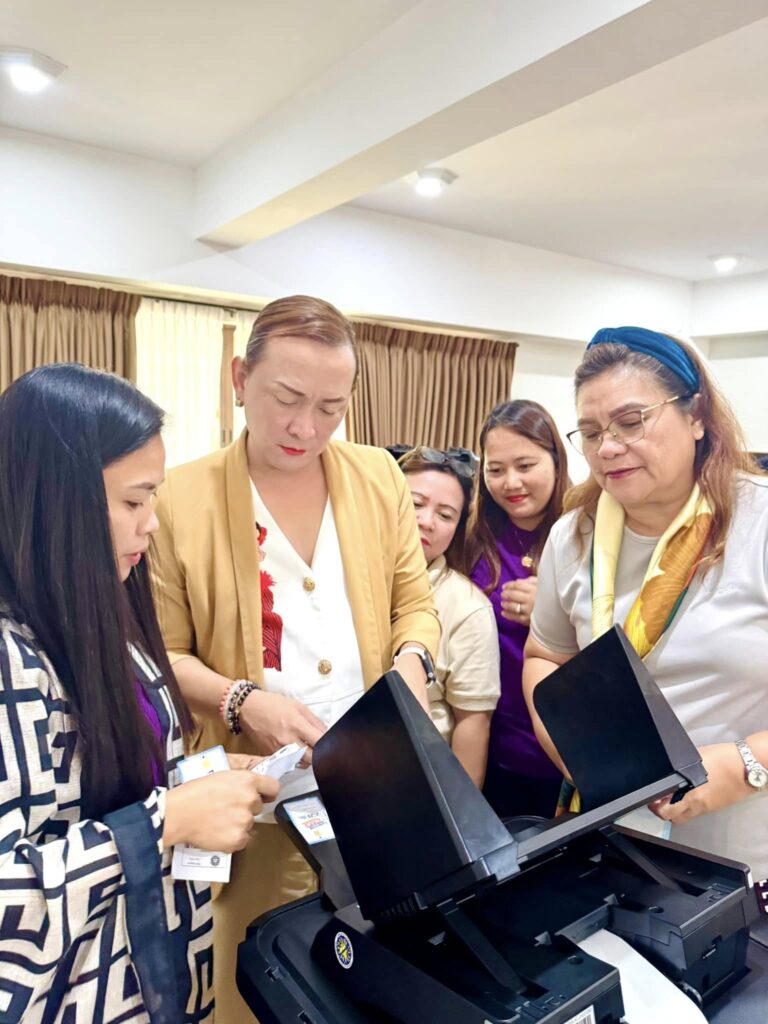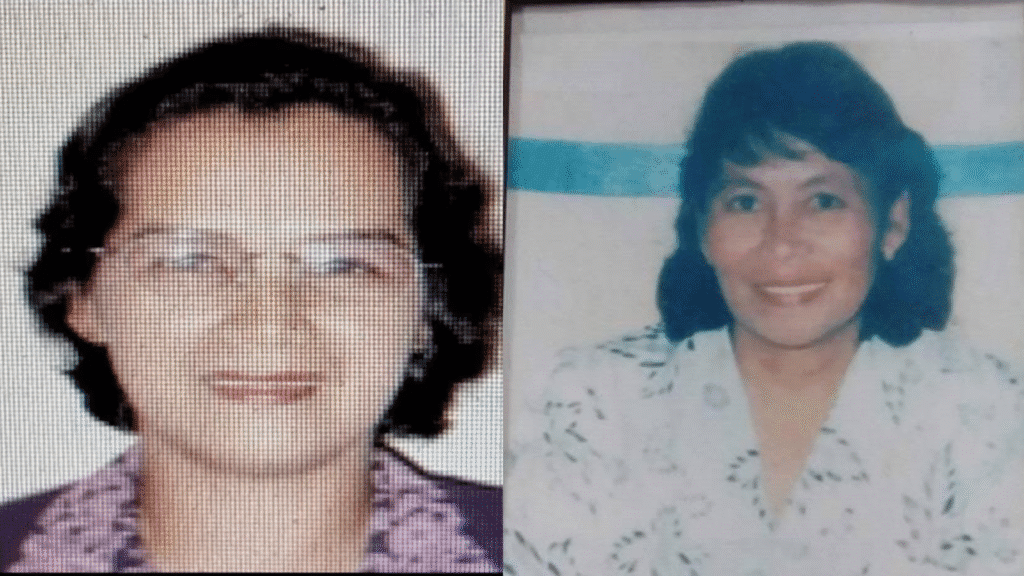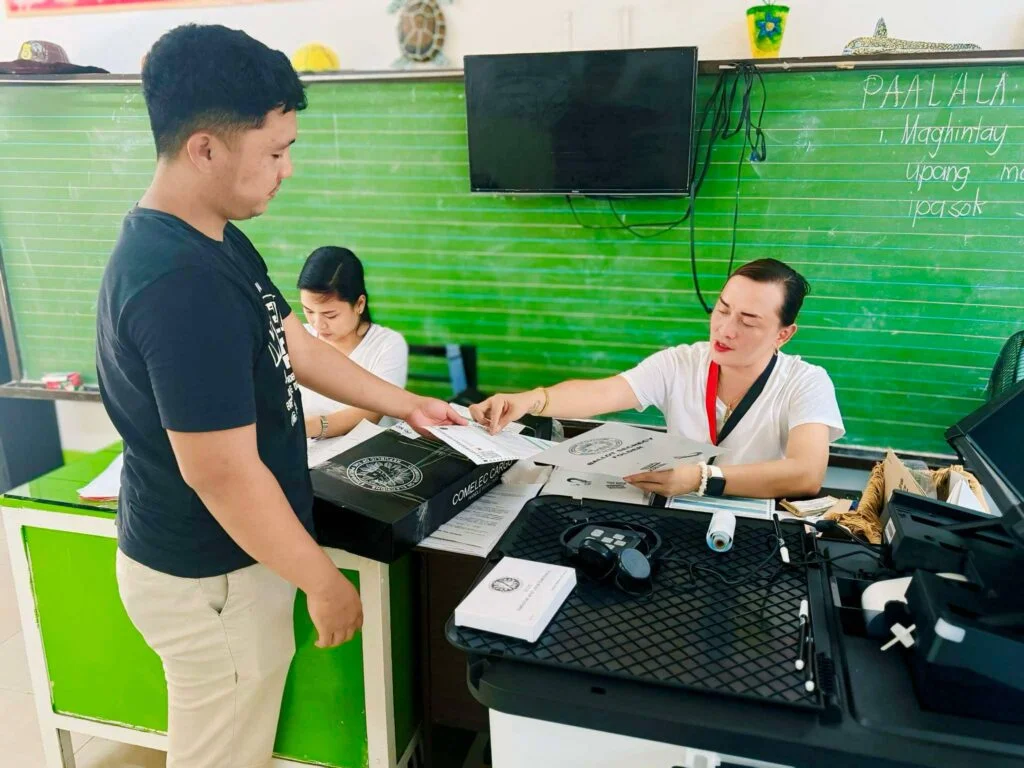
At dawn on election day, Teacher Jer was already in position in his poll precinct in Lemery, Batangas, ready to welcome early voters and endure the long, grueling hours ahead with little rest.
Jerome Bayao, a Master Teacher II at Lemery Pilot Elementary School—known to colleagues and students as Teacher Jer—has served as a poll worker for 14 years, 12 of them as chair of the Electoral Board. But each election, he said, feels like a new test.
“One of the biggest difficulties was dealing with the pressure and stress of ensuring everything runs smoothly while also staying vigilant,” the public school teacher from Batangas said.
Meanwhile, in Silang, Cavite, Inchican Elementary School Master I Teacher Marlon Samson also oversees the elections as chairperson at his precinct’s electoral board. Years of experience have prepared his mind—but not always his body—for the harsh conditions on election day.
“Here we experience hunger because there are almost too many people, even the use of toilets is limited because we cannot just leave our place. Add to that the hot weather, crowded classrooms, limited electric fans and, if luck is not with you, the lack of proper ventilation [Dito nararanasan namin ang magutom dahil halos dagsa ang mga tao maging sa paggamit ng mga palikuran ay limitado dahil hindi kami basta basta umaalis sa aming puwesto. Samahan pa ang mainit na panahon, masikip na mga classroom, limitadong mga electric fan at kung mamalasin walang maayos na ventilation,” Teacher Marlon said.
He added that the job is made even more difficult by unruly watchers and voters who disregard election rules.
Both Teacher Jer and Teacher Marlon are part of over 281,000 school teachers serving as EB members for the 2025 midterm elections.
While many only see teachers hard at work on election day, their responsibilities begin long before and continue well after the last ballot is cast.
Days of preparation

As EB members, teachers undergo up to three days of intensive training, simulations and manual reviews. They learn how to manage voting documents, troubleshoot ACM problems and apply new guidelines.
For those serving as Chairpersons, the responsibility is even greater. They are to coordinate closely with fellow board members to assign responsibilities, review precinct layouts and rehearse procedures to ensure smooth operations.
“It’s a big responsibility, and coordination among the board members is key,” Teacher Jer said.
As early as 11:30 p.m. the night before the election, several public school teachers are already lining up at COMELEC offices to collect election materials.
“The process is often chaotic with confusing systems, long waits and even the occasional scolding from overwhelmed election officers. [Doon pa lang pahirapan na dahil sa hindi maayos na pila, mga nakakalitong mga proseso at kung minsan, makakaranas na masigawan ng mga Election Officers,” Teacher Marlon said.
Once materials are secured, teachers head straight to their polling places. From that point on, there’s no going home.
“We can’t leave the materials or our posts. We set up the precincts and stay through the night,” Teacher Marlon added.
Strengthening security
Though both teachers have been fortunate not to experience direct harassment, they know colleagues who haven’t been as lucky. “Some have been threatened or yelled at by frustrated voters. It’s stressful and scary, especially when we’re just doing our job,” said Teacher Jer.
In extreme cases, violence takes lives. In 1995, teachers in Mabini, Batangas were doing their regular duties as poll workers when a group of armed men stormed their school. While other teachers survived the ambush, public school teacher and guidance counsellor Filomena “Fely” Tatlonghari was shot after refusing to turn over the ballots.

Nelly Banaag (left) and Fely Tatlonghari died while in service during the elections.
In Taysan, Batangs in 2007, Nelly Banaag and her colleagues were tallying the votes when masked and armed men fired their guns, poured gasoline on the ballots and set them on fire, injuring several colleagues and taking away Banaag’s life.
To safeguard teachers and poll workers, the Department of Education (DepEd), Commission on Elections (Comelec), Armed Forces of the Philippines (AFP) and Philippine National Police (PNP) have signed a memorandum of agreement aimed at ensuring peaceful and transparent elections.
In addition, the DepEd has fully activated its Election Task Force (ETF), with a command center provide real-time monitoring and immediate response to incidents on election day. The ETF is also mandated to coordinate legal and medical assistance for teachers rendering poll duties.
Civic groups also set up help desks to receive and respond to reports of harassment, procedural lapses and other election-related concerns.
Rewards don’t meet realities
While teachers were previously mandated to stand as poll workers and report to duty despite the risks, the enactment of Republic Act 10756 or the Election Service Reform Act of 2016 made election-related services voluntary with a package of benefits, including an honorarium and at least five days of service credits.
For the 2025 elections, honoraria for Electoral Board (EB) members and support staff have been increased by P2,000. Chairpersons will now receive P12,000, up from the previous P10,000. Poll clerks and third members will each receive P11,000, an increase from P9,000. Meanwhile, support staff will get P8,000, up from P6,000.
However, teachers contend that this increase is offset by taxes, reiterating their longstanding call to exempt election-related compensation from taxation.
Aside from the honorarium and service credits, teachers receive a transportation allowance.
“We spend almost five days going here and there to go to the Comelec. Even with a P2,000 transpo allowance, I can say it is not enough, so I hope this will be increased. [Kung susumahin halos five days ang inilalaan naming sa paroot parito sa pagpunta sa Comelec. Kahit na may P2,000 na transpo allowance masasabi kong hindi sapat ito kaya sana dagdagan ang allowance,” Teacher Marlon added.
Reward from fulfillment

Teacher Jer assisting a voter on election day in Lemery, Batangas. Photo by Jerome Bayao.
On Monday, Teacher Jer said the elections went smoothly overall, thanks to the cooperation of voters and EB staff and the training of COMELEC.
But it might be a different story for Teacher Marlon who begged off a follow-up interview after hours of duty with little breaks.
“[We started out Sunday] at 11:30 pm and we just ended Tuesday, without a proper meal and without rest [Nagsimula kami Lnggo ng 11:30 pm at now lang po kami nakatapos Tuesday, walang kain walang tulog],” he said.
When voters return to the comfort of their homes, the work of teachers at the polls continues. Their responsibilities extend late into the night, transmitting results, reviewing documents, ensuring accuracy in election returns and securing all materials for proper turnover.
As cumbersome and chaotic as the elections are, many like Teacher Jer and Teacher Marlon will continue to serve in the electoral process out of a deep sense of civic duty, even when the risks are high and the rewards fall short.
“It’s not easy, but you feel proud knowing you helped people vote—helped democracy happen,” said Teacher Jer.


